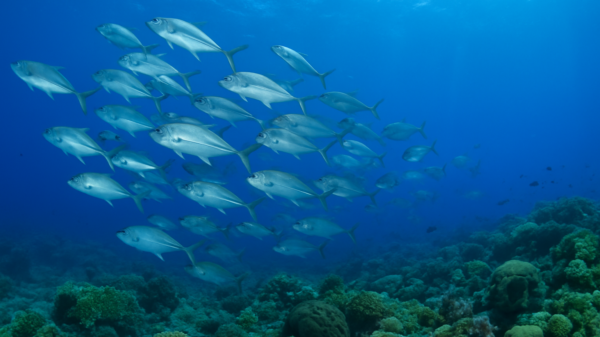Irving Oil, the University of Toronto Scarborough, and Ducks Unlimited Canada (DUC) forged a partnership on Wednesday over a research project to determine if wetlands are natural places to absorb carbon.
The project is to provide scientific evidence in support of the theory that wetlands are a nature-based climate solution. It will also provide information which will assist with protocol and legislation around the protection, conservation, restoration and management of these eocsystems.
The project involves deploying multiple flux towers in freshwater mineral wetlands across Canada. These measure how much carbon, methane and other greenhouse gases the ecosystems are both storing and releasing. Results will populate a wetland database for agricultural landscapes in Canada.
The Climate Action and Awareness Fund is contributing up to $206 million over five years.
Researchers from the University of Toronto Scarborough are spearheading the academic arm of this initiative. The university is taking the lead among academic institutions to deliver results to help inform national and regional carbon protocols.
“There’s an assumption that nature is storing carbon to a certain degree, but we need stronger evidence to truly know how effective these nature-based climate solutions are,” said Irena Creed, U of T Scarborough professor, and the academic lead on the research partnership.
Meanwhile, Irving Oil has committed to a 30 per cent reduction in greenhouse gas emissions by 2030 with a net-zero emissions objective by 2050. They company views this partnership as a important component towards finding a path to a more sustainable future.
Read more: The Mugglehead technology roundup: climate change fighters edition
Read more: Government of Canada invests $500K in cleantech electrical grid solution
Wetlands pushed by organizations climate capture alternative
Irving Oil is a privately held international energy company. Founded in 1924, it specializes in refining and marketing of finished energy products. It has the largest refinery in Saint John, New Brunswick, and the only refinery in Ireland, in Whitegate. It also has 1,000 fuelling stations and a grid of distribution terminals spanning Eastern Canada, New England and Ireland.
“We are proud to continue to grow and evolve our long-standing partnership with Ducks Unlimited Canada as we work together to advance the understanding of nature-based carbon solutions and the tools needed to estimate greenhouse gas emission reductions through wetland conservation, restoration and management,” says Ian Whitcomb, president of Irving Oil.
Ducks Unlimited Canada is a conservation oriented charity focused on the wetlands. It grounds it decision making processes in science, and frequently partners with governments, industry, Indigenous Peoples, non-profit organizations and landowners to conserve wetlands.
For its part, DUC has a long history of collaborations with industry and academic towards the advancement of conservation science. The Beaubassin Research Station is one such collaboration. It’s located on the border of New Brunswick and Nova Scotia and courtesy of a partnership between DUC, Irving Oil and academia, students and researchers can work together on scientific issues.
“The benefits of conserving wetlands for wildlife and recreation have long been established, but this research will examine the use of wetlands as a climate mitigation tool,” says Pascal Badiou, research scientist for DUC. “We believe there is great potential for wetlands to function as nature-based solutions while supporting a thriving agricultural sector.”
Follow Joseph Morton on Twitter
joseph@mugglehead.com














